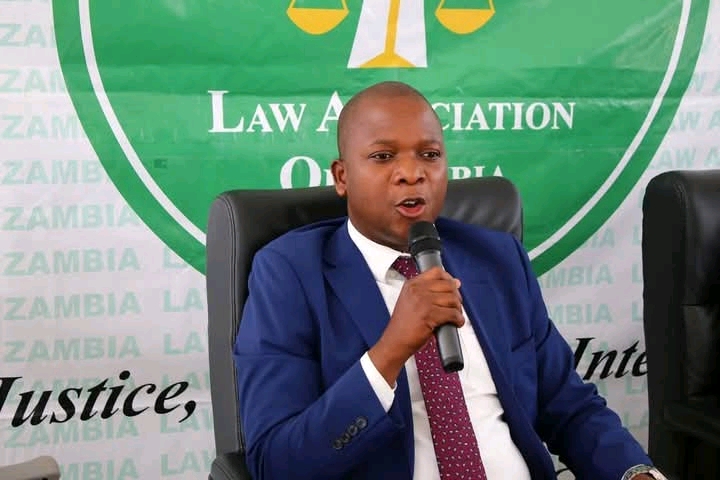DEMOCRACY UNDER SIEGE: Secret Constitution Bill Triggers National Uproar
The Zambian government has come under fierce scrutiny over its decision to proceed with Constitution Amendment Bill No. 7 of 2025, a move condemned as a top-down assault on democratic principles. The Law Association of Zambia (LAZ), the country’s premier legal body, has described the Bill as illegitimate, secretive, and unworthy of the republic’s highest law.
In a strongly worded press release issued on June 3rd, LAZ slammed the government for bypassing the Zambian people the rightful custodians of the Constitution. According to LAZ, the amendment process lacked any form of genuine public consultation or stakeholder involvement, a violation of the core tenets of constitutionalism.
LAZ decried the government’s decision to merely publish the Bill in the Gazette for “general information,” without setting up mechanisms for citizen participation or transparency around how the proposed changes were drafted. This, the association argues, turns what should be a national dialogue into an elite-driven decree.
At the centre of the outrage is Section 8 of the Bill, which proposes that vacancies in Parliament be filled by political parties instead of holding by-elections. This alarming clause, LAZ warns, would allow parties to install hand-picked loyalists into Parliament without public input, eroding the electorate’s fundamental right to choose their representatives.
Such a provision threatens to undermine the National Assembly’s independence, reducing it to a docile extension of ruling party machinery. In a country where intra-party democracy is already fragile, critics say this could accelerate the rise of authoritarian tendencies cloaked in legal reform.
LAZ also raised concerns about the Bill’s supposed attempts to enhance inclusion of women, youths, and persons with disabilities. Instead of engaging with these groups to shape inclusive policies, the government has opted for top-down window dressing, further exposing the Bill’s lack of integrity and sincerity.
Equally contentious is the plan to increase the number of elected Members of Parliament from the current 156 to 211, despite the country’s strained fiscal position. LAZ criticized this as a reckless expansion of bureaucracy, with no empirical evidence that more MPs lead to better representation or development outcomes.
The legal body further questioned why the government would prioritize inflating the size of Parliament while ignoring urgent national needs like decentralization, grassroots empowerment, and basic service delivery. In their view, this bloated proposal is a gross misallocation of public resources.
Even more troubling is the secrecy surrounding the Electoral Reform Technical Committee Report, which the government cites as justification for the increase in MPs. The report has never been made public, prompting suspicions that the process is being manipulated for political engineering and gerrymandering.
Zambians, LAZ argues, cannot be expected to debate national reform meaningfully when critical information is classified or hidden from public scrutiny. This is not only an affront to participatory governance but also suggests that the Bill’s content may serve narrow political interests rather than the national good.
In light of these grave concerns, LAZ is calling on government to immediately withdraw Constitution Amendment Bill No. 7 of 2025. They are urging the administration to return to the drawing board, this time with a framework that ensures transparency, consensus, and genuine public participation.
In a proactive move, LAZ announced that it will convene a Public Forum where citizens can voice their opinions and help chart a more democratic pathway to constitutional reform. This initiative aims to restore the people’s voice in a process that was never meant to exclude them.
June 4, 2025
©️ KUMWESU
